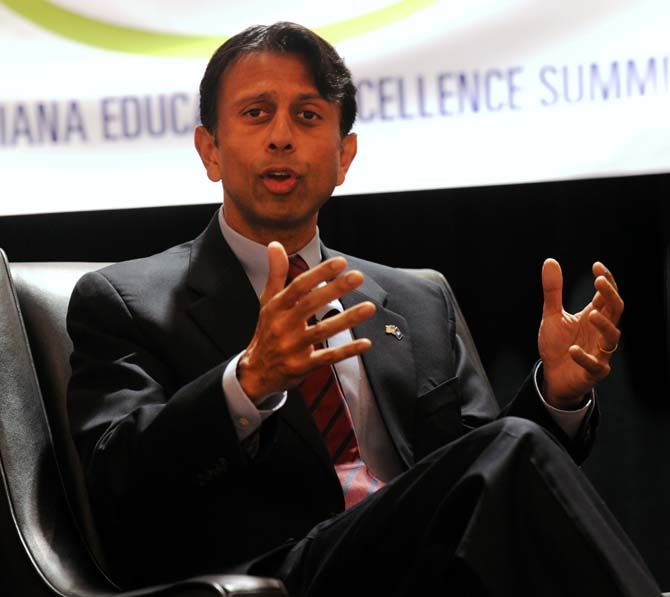As a college student studying to become part of the working world, choosing to be a teacher is not an option that jumps out for any typical, attractive reasons.
The hours are long, it’s not particularly good pay and it means remaining part of the same system from kindergarten until retirement.
Teachers aren’t in it for the money, they’re in it because they have a passion. The nation’s policy-makers should do everything they can to facilitate that, instead of judging accomplishment by a mismanaged educational yardstick, as in the system supported by Louisiana.
In a rare public appearance in his home state on Wednesday, Gov. Bobby Jindal spoke in an education forum with former Secretary of State Condoleezza Rice and other educational and business leaders, both touting merit pay for teachers as a way to improve the K-12 system.
Maybe this would be true in a perfect world. Considering Louisiana, and even the United States, is not part of an ideal educational situation, the idea of merit pay is useless.
Paying teachers based on standardized testing scores compared with schools across the nation is not an acceptable way to improve the system.
Above all, the U.S. is based on the idea that anyone can make something of himself or herself, and education is key to that effort.
Following that idea, schooling should be the matter of most importance to everyone.
This is not an overreaction.
We all attended school, whether public, private or home-school — we all have the advantages modern education provided us.
We also know from this education, and all the options afforded, everyone’s situation is not the same.
Students and school districts all have different circumstances, whether it be a school-positive family atmosphere or state funding, and according to multiple journal articles, these are integral parts of the education equation.
Teachers can only do so much.
They already do so much. Ask an average K-12 teacher in an American school about his or her day, and it will most likely start before dawn and end after dusk.
Asking teachers — especially those in under-resourced schools that typically score lower on standardized tests — to do more and be paid less is ridiculous.
The argument here is that no one hates teachers; our appreciation for them only goes so far.
Public policy needs to echo this sentiment because right now, what we show teachers is not up to par with what we show champions of our free enterprise economic system, men and women who achieved so highly, coincidentally, because of phenomenal teachers. Whether pre-k, middle school or university, someone taught them how to read, how to think critically and how to run numbers.
If we continue further down the road in the direction we’re headed, the nation would see a continuation of current patterns.
Those include worse burnout of new teachers at younger ages, a migration of the highest-qualified teachers to comfortable suburban or private school jobs and disintegration of the system.
If the United States still wants to harbor beliefs about being the nation of up-and-coming greatness, Jindal and Rice — as well as other policy-makers — need to refocus their attention on students.
Create tutoring programs and help them be the best-prepared students they can be for the classroom environment that passionate teachers provide.
Facilitate the passion, and just let teachers do what they do best.
Not paperwork, not proctoring ridiculous standardized tests — teaching.
Megan Dunbar is a 19-year-old English junior from Greenville, S.C.





